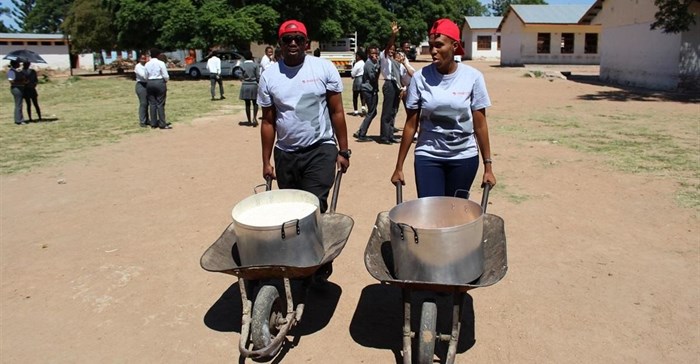
Top stories






More news


Marketing & Media
Ads are coming to AI. Does that really have to be such a bad thing?













In his own unique way, Mandela helped to restore the world’s trust and confidence in South Africa after apartheid. To honour his legacy the United Nations in 2009, decided that July 18, his birthday, would be Mandela Day.
People in 149 countries mark the day by taking time out to help others. As Madiba – his clan name derived from his Xhosa ancestry – has shown, everyone has the ability and responsibility to help change the world for the better.
This year the Nelson Mandela Foundation is encouraging people to specifically take action against poverty. More than 63% of South African children live in poverty; one in five - 12 million - South Africans live in extreme poverty.
Despite the positive impact of social grants, poverty continues to halt progress in South Africa. Only through sustained development can it be eradicated to ensure a dignified life for all.

South Africa could do with its citizens becoming more active. In Brazil popular movements have worked with business elites to redistribute wealth and opportunity in a society that’s as unequal as South Africa. Without exception, development - particularly efforts to tackle poverty and inequality - is best achieved through a combination of active citizenship and effective states.
South Africa needs a brave and moral leadership to redirect its citizens (and politicians) to fight the scourge of poverty through development. Moral leadership has the ability to educate and activate communities to restore human dignity.
The country’s National Development Plan aims to eliminate poverty and reduce inequality by 2030. South Africa can realise these goals by drawing on the energies of its people. The country also needs to grow an inclusive economy, build capabilities, enhance the capacity of the state, and promote leadership and partnerships throughout society.
The plan makes it clear that to accelerate development, all South Africans must come on board. Leadership in all sectors must also put the country’s collective interests ahead of narrow, short-term goals.
This will require policy changes, the implementation of government programmes and holding people - especially political leaders - accountable for their actions. Also sorely needed are innovative solutions to complex challenges like poverty, unemployment an inequality.
South Africa urgently needs to recover from the damage caused by “Zumafication” – where its president is accused of running the country through personal networks of favouritism and cronyism. John Wallis, the founder of The People Capital Project SA says some members of President Jacob Zuma’s executive have become tainted as corrupt and untrustworthy kleptocrats.
Many promises, scenario plans and forecasts have not been translated into homegrown and concrete development proposals, backed by a robust development curriculum, to help South Africa turn the socio-economic corner. The country has yet to be characterised by high levels of innovation, equality, opportunities, economic justice and human rights.
As such, the hopes and expectations of the poor have collapsed, leaving them even poorer (and less productive) than they previously were.
Zuma has become a prisoner of his own making - both the tool and agent of a self-serving political elite, amid growing poverty and hunger.
How long can this go on before the country’s economy – already in the doldrums – implodes, and a deep rooted entitlement inspired complacency turns into social upheaval?
This state of affairs often leads to secrecy, deep political factions, state capture, looting and corruption, as already seen. The growing dispossession of citizens amid growing accumulation by a few elites results in growing economic injustice, leaving more people on the fringes of society.
Where the state and corporate bosses are only driven by financial growth and gain, without coupling it with productive development projects, they hold the down-trodden to ransom.
![]() South Africans can no longer standby and watch their “house” burn. To truly honour Mandela’s legacy, they should espouse the values of active citizenship and help restore the world’s confidence in their country. Otherwise, they’ll continue barking at the moon.
South Africans can no longer standby and watch their “house” burn. To truly honour Mandela’s legacy, they should espouse the values of active citizenship and help restore the world’s confidence in their country. Otherwise, they’ll continue barking at the moon.

The Conversation Africa is an independent source of news and views from the academic and research community. Its aim is to promote better understanding of current affairs and complex issues, and allow for a better quality of public discourse and conversation.
Go to: https://theconversation.com/africa